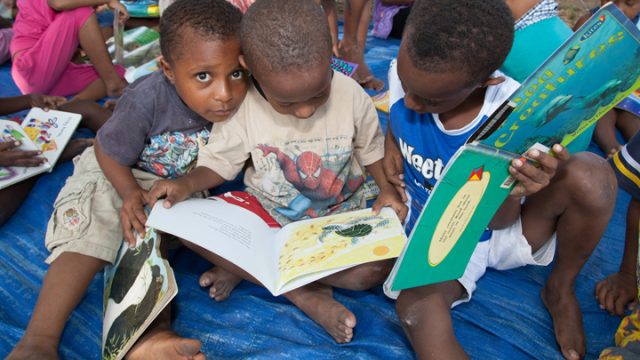Many children are not ready for school because parents have not get them ready for school by training them skills that will help them when they get to school.
Teachers are struggling to cope with many children who were not taught by the parents the skills that will help them cope in school.
90% of parents believe their child is ready to start school but teachers say a third of children aren’t, according to a global report.
The report further said “the majority of school staff highlighted children spending too much time on electronic devices (54%) and parents not reading enough to their children (52%) as key reasons why children may not be school ready.”
To get children ready for school, the child’s physical, social, emotional, and cognitive skills must be built by parents.
According to a psychologist, “When preparing children for school, it’s essential to focus on a broad set of school readiness skills rather than rigid developmental milestones.
Every child develops at their own pace, and placing too much pressure on them (or on parents) can lead to anxiety and resistance rather than progress.”
There are no official check list of skills children need to master before school but research has shown that preparing children for school in a positive manner has a good impact, not only on their happiness through their time in their new setting but also on how they view transitions in the future.
Some of the basic skills necessary to prepare children for school are listed below:
Self-care skills such as going to the toilet independently, washing hands and putting on their wears and shoes, eating independently etc.
Parents will need to start by helping children do some of these things and gradually withdraw step by step to help them learn independence with courage.
Children need to understand that there may be minor accidents but should learn how to avoid and quickly recover from minor accidents.
Social skills such as waiting, sharing, and asking for help in situations that can harm them or overpower them before it turns awry.
Parent sometimes needs to demonstrate some of these by example because children learn faster from practical situations. They will always remember what daddy or mummy did in a certain situation which they believe will also work for them.
Hide and seek games can be good for teaching children how to keep trying things until they get what they need to find with the impression that as they find during hide and seek, patience will eventually help them.
Early literacy and numeracy skills such as how to hold a book, turn pages, recognise words, patterns, shapes, and counting in everyday life.
Emotional Regulation such as ability to manage small frustrations, separate from their caregiver without distress and engage with peers in play.
These skills will help kids to adapt easily to school life,relieving teachers of much efforts with parents having the confidence that their children will be safe at school.
femiores@katsinamirror.ng




